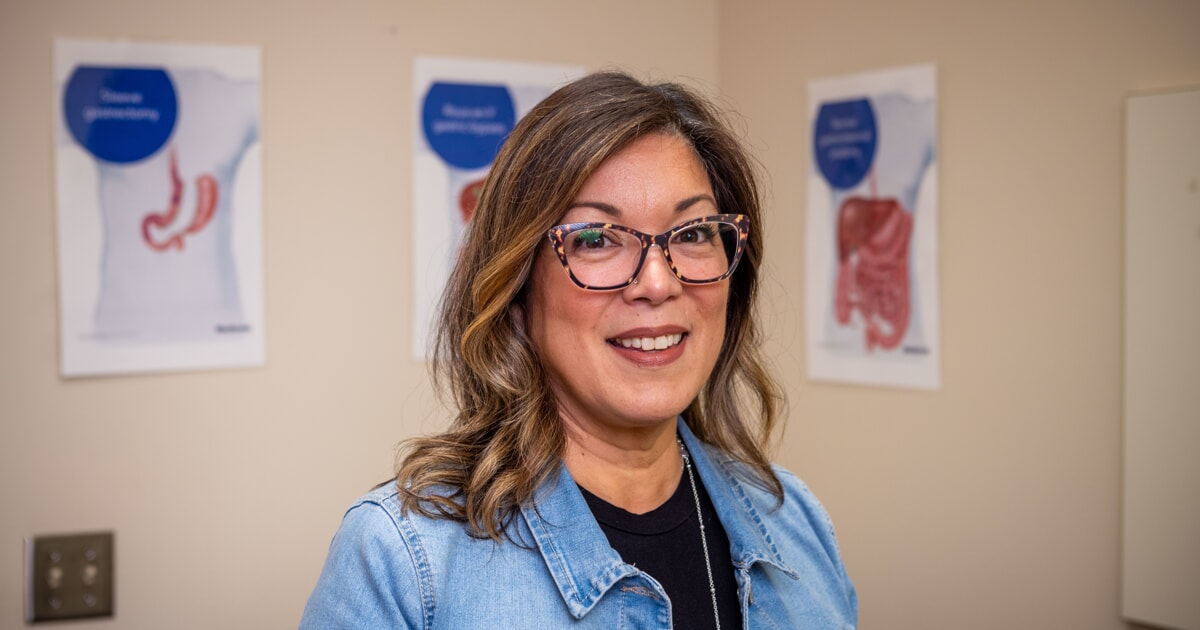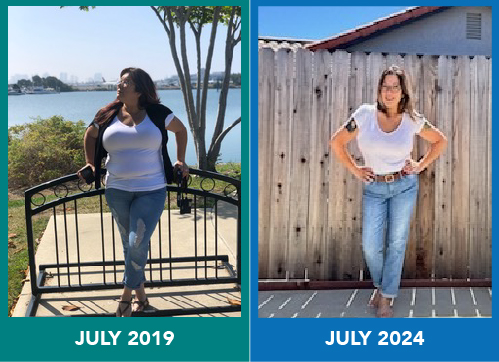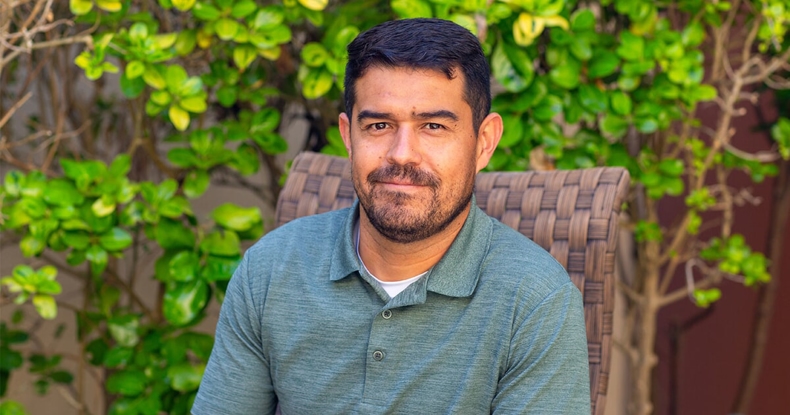Losing 100 pounds, and gaining a new life
- Patient: Mona Martin
- Date Submitted: Jul 12, 2024


“ Mona Martin decided to undergo gastric sleeve weight loss surgery, and her hard work eliminated many medical issues”
Nearing her mid-50s, Mona Martin found she was facing a host of medical problems – she was overweight, had hypertension and migraines, her knees hurt and she was prediabetic.
“It was a lot on my body,” said Mona, who works as a civilian at Vandenberg Space Force Base. “I was not happy at all. Being overweight affected everything in my life. Mind, body and soul.”
One day, she spoke with someone she knew at work who had recently lost a large amount of weight. She soon learned that the coworker had undergone bariatric, or weight loss, surgery.
“When I heard military insurance would cover it, I said ‘Sign me up,” recalls Mona, the wife of a retired military man. “I did a lot of research, and I sat on it for a while. I wanted to make sure I was ready mentally. It’s a lot of work. People are going to think it’s a quick fix. In my experience, it is not.”
Mona opted to undergo bariatric gastric sleeve surgery from Dr. Christopher Taglia. Gastric sleeves involve removing most of the stomach, making the patient feel full quicker and reducing hunger. Her surgery took place in early December 2022. At that time, she weighed 257 pounds.
“It’s been such a good experience,” says Mona, who now weighs 160 pounds.
Mona had tried for years to lose weight and suffered from anxiety and depression because of it. It was a struggle on my mental health.
“I’ve tried everything you can possibly think of and the weight gradually it comes back, or comes back with more,” she says.
She has been amazed at how her life has changed since losing almost 100 pounds.
“Everything that I mentioned, my migraines, my back, my knee, being prediabetic, all of that is gone. And of course, my energy level is better.”
To start the bariatric process, Mona received a referral to Dr. Taglia from her primary care physician.
“He has been just amazing,” she said of the surgeon and his support team. “You get nervous. You have all the questions. They’re just so patient, and truly listen. Anytime I need anything, I can call without feeling like a burden … He’s an integral piece of why I felt comfortable. He is just very personable.”
In preparing for her surgery, Mona admits to struggling with two weeks of a liquid diet, especially since she started the day after Thanksgiving.
“I had to grieve for my food,” she explains. “I called it the Last Supper. I had to let those comfort foods go, because a healthier life is what I want for my future.”
Dr. Tagila and his team were “very, very transparent” about what was going to occur during her surgery and beyond. Her surgery was conducted by Dr. Taglia using the DaVinci robotic surgical system.
Because her diet and ability to eat certain foods changed so drastically, Mona said she is now “hyper-focused on my body and listening to it.” She installed an App on her phone which reminds her to each small meals every two hours and drink as much water as she can.
She’s also started doing meal prep for the work week. Because of her chosen lifestyle change, her husband has lost 40 pounds as well. She used to dread the meal chore, but now she and another friend swap weeks, so they can each try new recipes. The couple have also been saving hundreds of dollars a month by not eating out as much as they had previously. They no longer fry most of their foods and don’t use heavy sauces. Gone is the nightly ice cream ritual while watching television, or pizza meals several times a week.
“We’re able to cook together and do more meal prep,” she says. “It creates a sense of connectedness too.”
She said she’s excited now about cooking for her meal prep.
“It’s new for me,” she said. “I used to be that person who would say ‘It’s too hard. I’m not going to do it.’ I heard somewhere the saying ‘I live to eat.’ The way we are in society, there are a lot of bigger portions of processed foods. Now after surgery, I have to eat to live. Everything I put in my body has a purpose, to stay on my journey, to stay on track. If I am not strong mentally, I’ll quickly go back to old habits.”
Mona says that while she has a lot of support, she’s doing this for herself.
“Nobody can love me more than me. I have to do it for myself.”
She says in addition to a better energy level, her coping skills and ability to handle stress have also improved.
She’s become adventurous in finding “food hacks” to make her meals more suitable and has realized foods that she can no longer tolerate, such as iceberg lettuce and peanuts. She had fun buying new clothes and paying it forward by donating her old, larger size, clothes to the thrift store on base. Her shoe size went from a 9 to an 8, and her wedding ring size decreased as well. She renewed her marriage vows in May and bought a new outfit for the ceremony.
“It’s been nothing but positive,” she says of her journey. “There are some challenges there. You’re changing and 80 percent of your stomach is gone. It’s a shock to your system. It’s time consuming. We’re in a world where there is never enough time. But there is, if it’s important to you. It’s a commitment for life.”




